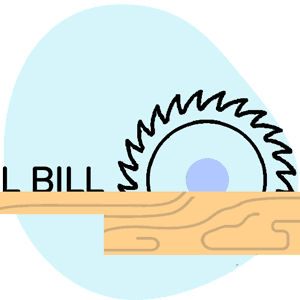Medicare Advantage & Workers' Comp: Why Providers Reject Both

Becker’s reports that hospitals and health systems across the nation are giving up on Medicare Advantage, terminating contracts and refusing to treat patients covered by the federal program.
What’s this got to do with workers’ comp? That’s a fair question with a simple answer: Doctors are fed up with Medicare Advantage for the same reasons they’re fed up with workers’ comp.
Medicare Advantage and workers’ comp suffer from extraordinary authorization inefficiency and payment non-compliance, making it too costly to treat these patients. In California workers’ comp, the problem is even worse, thanks to decreased reimbursement rates and the indifference of state regulators.
California’s current physician fee schedule rates are set at 146% of Medicare rates. But when a provider finally receives payment (after jumping through extraordinary authorization and billing hoops), the payment is often below Medicare rates due to Preferred Provider Organizations (PPOs). These PPO discounts are often invalid or improperly applied, but there are rarely consequences for the payer.
Healthcare providers are wising up, making a financial analysis, and realizing that the (unpaid) administrative work required to treat Medicare Advantage patients and injured workers is simply not worth it.
Medicare Advantage Fails (Exactly the Way Workers’ Comp Fails)
Becker’s maintains a running list of hospitals and health systems opting out of Medicare Advantage as more and more providers reach their limits. The list is long and growing. However, the reasons for this revolt against Medicare Advantage are instructive for state legislators, regulators, and other Powers-That-Be in workers’ comp.
According to Becker’s (emphasis ours):
“Among the most commonly cited reasons are excessive prior authorization denial rates and slow payments from insurers.”
Sound eerily familiar?
Readers of this blog are no strangers to the struggles physicians endure to obtain authorization to treat injured workers, particularly in California. The Utilization Review (UR) process, by which claims administrators decide whether or not to authorize treatment, is a cesspool of needless delays and denials of care.
Sedgwick, one of the industry's largest Third-Party Administrators (TPAs), actually touts its 54% national treatment denial rate as a selling point to potential clients.
Horror stories of needlessly delayed and denied care aren’t hard to find—but statewide UR data is, thanks to the indifference of the Division of Workers’ Compensation (DWC), which has defied California law by refusing to establish a mandatory UR data reporting system.
Once a provider obtains authorization, the DWC allows payers to refuse payment for the authorized treatment despite state law mandating payment. In other words, in California, providers always lose.
As for the problem of “slow payments,” that’s daisyBill’s raison d’etre. Because of the nightmarish labyrinth of regulatory requirements and obstacles inherent to workers’ comp revenue management, we developed an e-billing software platform that gets providers paid in a reasonable amount of time.
Scapegoating Providers Won’t Save Workers’ Comp
Despite the clear and well-documented problems of excessive authorization denial rates and slow or incorrect payments, one implausible (but convenient) false narrative still holds sway: providers are the problem.
The idea of hordes of greedy doctors over-treating injured workers and defrauding claims administrators isn’t only inaccurate; it serves to distract from the real issues. As a reader recently commented in response to a recent daisyNews article (emphases ours):
"Any medical provider, doctor or otherwise, would know that when you see a workers comp patient, it is not for profit but the amount of red tape, bureaucracy, paperwork nightmare, billing headaches due to substantiated and unsubstantiated denials are not worth seeing the patient for.
The “accusation” that we are the problem of workers comp and that we are siphoning the profit is ridiculous. A lot of highly skilled doctors and physical therapy places no longer want to take work comp is indicative of this problem. There are a lot of “treat but no pay” situation going on."
As another reader noted, there comes a point where action on the part of providers is the only feasible solution:
"The workers' compensation reminds me of healthcare rackets in Spain, Italy, and some parts of South America; it's a grifter's paradise. Physicians have the power to effect change. This type of change requires sincere, aligned collaboration and commitment and it can be done with a leader who can bring providers together to pressure regulators (and payers, network administrators, etc.) to do so. Change is fundamental to progress and there will never be progress without the willingness and commitment (from providers) to change!"
In California, workers’ comp “change” comes down to providers uttering a single word when asked to treat an injured worker: NO.
California providers have no choice in this. Despite the willingness and desire to help injured workers heal and return to full employment, the DWC has created an environment that forces practices to financially bear the weight of the system’s failures. This is not affordable or sustainable in the long (or even medium) term.
In the case of Medicare Advantage, providers are collectively saying, “Enough is enough.” Becker’s continues to update its list of health systems that are exiting a system that refuses care to patients and delays payment to providers. Workers’ comp will (and should) see a similar provider exodus.
Many California workers’ comp providers are already, understandably, heading for the exit. These medical professionals have every reason to cease treating injured workers, in a state that leaves providers and injured workers bereft of even the most basic protections.
Nationwide, daisyBill increases revenue and decreases hassle for providers who treat injured workers. Get a free demonstration below.
SCHEDULE DEMO
DaisyBill provides content as an insightful service to its readers and clients. It does not offer legal advice and cannot guarantee the accuracy or suitability of its content for a particular purpose.





